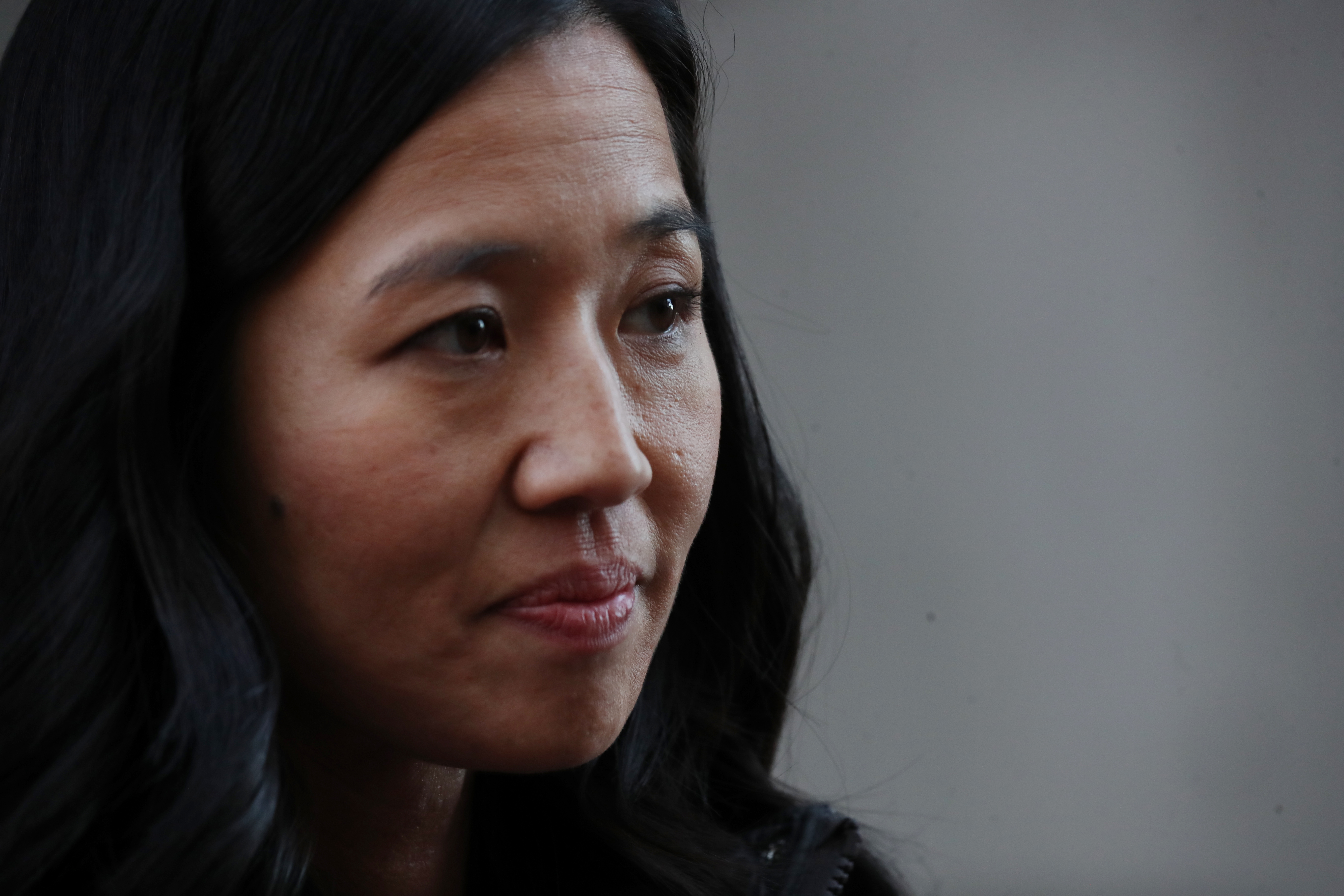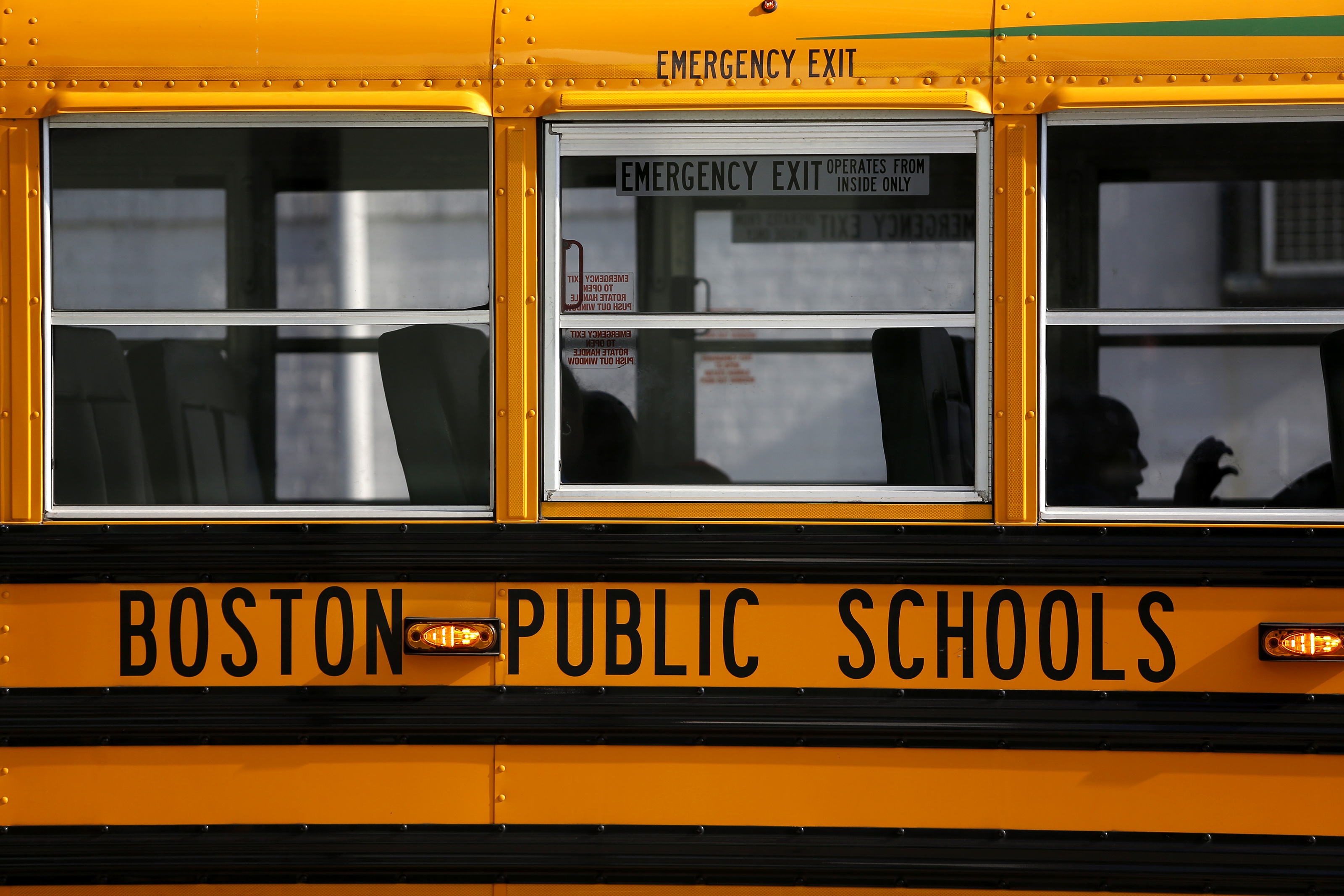A scathing report on Boston Public Schools found a need for “immediate improvement.”
Boston Public Schools is struggling to operate on a basic level and is not addressing "systemic barriers" to equitable education, the Massachusetts Department of Elementary and Secondary Education said Monday in a scathing report.
While crediting outgoing Superintendent Brenda Cassellius for progress on some initiatives, the DESE report concludes that "BPS needs immediate improvement."
WATCH ANYTIME FOR FREE
>Stream NBC10 Boston news for free, 24/7, wherever you are. |
The report was issued as a follow-up to a state review of BPS issued in March 2020.
"Over the past several years, under Dr. Cassellius’ leadership, BPS has successfully launched several new district-wide initiatives and has further advanced others. However, the district has failed to effectively serve its most vulnerable students, carry out basic operational functions, and address systemic barriers to providing an equitable, quality education.
Get updates on what's happening in Boston to your inbox. Sign up for our >News Headlines newsletter.
Boston Public Schools told NBC Boston in a statement that the report is "a welcome midpoint progress update" that offers direction in areas that need to be improved, and that "we look forward to working collaboratively with DESE to ensure all BPS students can reach their full potential."
On Monday afternoon, city leaders sent a letter to the BPS community saying, "We share the community’s urgency and readiness for solutions, and BPS is committed to moving forward to address these challenges."
Read the report here:
In 2020, DESE had announced a memorandum of understanding with Boston aimed at addressing what state officials then called "persistent challenges" identified in a review of the district, one that found that about a third of BPS students attended schools that rank in the bottom 10% statewide. Monday's report followed up on the work done at the district since 2020, and was requested around the same time that Cassellius announced her resignation, it said.
Areas that need improvement include special education -- which was on the school committee's public agenda once over the last two months -- and other vulnerable student populations, the report said.
"BPS has shown little to no progress in addressing the needs of its students with disabilities, English learners, and students at the district’s lowest-performing schools, resulting in continued poor outcomes for tens of thousands of students," according to the report.
Basic operational functions like transportation and safety protocols remain challenges, with failures increasing in the last two years. This January, there were nearly 1,150 uncovered morning school bus routes, affecting about 16,000 students, state officials said.
Many needy students are concentrated in a fraction of Boston Public Schools, another issue that had been identified but which the district hasn't made progress on, according to the report. And the frequent churn in leadership -- Cassellius' successor will be the fifth superintendent since 2013 -- is another problem.
Among the successes outlined in the report include BPS' progress adding quality instructional materials, a focus on early literacy, efforts to diversify teaching and a push to staff up underperforming schools.
In the run-up to the report's release, the education think tank Pioneer Institute recommended that Boston Public Schools be put into state receivership, a move that would allow the state education commissioner to appoint an administrator to oversee the district and improve it along predetermined metrics.
There is no clear, consistent district-wide strategy to fix underperforming schools, the Pioneer Institute said in March.
But Boston Mayor Michelle Wu has long opposed receivership, a position she reiterated at a Boston School Committee meeting in March: ""With deep gratitude for our educators for the progress we've made and with a deep appreciation for the scale of the challenges ahead, receivership would be counterproductive in light of our ongoing transition and in light of the progress we're making in collaboration with the state."
The Boston Teachers Union took issue with the report in a lengthy statement emailed to NBC10 Boston, saying state receivership hasn't been effective in the past, the report contains inaccuracies, and that Wu should be given time to implement solutions.
“First, state receivership has been documented to be generally ineffective or harmful in all cases where it has been attempted in Massachusetts, including where it has been attempted at individual schools within BPS. In fact, over many years, receivership schemes by state bureaucrats have been proven to be ineffectual in nearly all cases where they have been attempted across the nation. Second, the report contains factual inaccuracies to such a degree that it warrants significant revision and either to be rescinded or reissued. Additionally, to the extent the report points to some well-known areas where the district has room for improvement, it is demonstrably clear that the City of Boston’s newly and democratically elected mayor has plans and a vision to address those areas and she should be given the opportunity to see those plans through before the state attempts another expensive, harmful and undemocratic takeover orchestrated by partisan bureaucrats."
The statement continued, "This is an opportunistic attempt to overcommit the state past the current governor’s tenure to a hostile, unhealthy and burdensome relationship with the city by bullying the new mayor into an untenable, undemocratic, and patronizing arrangement. The state has forced BPS to do a report that normally takes several months in just two weeks. With a mayor that has been in place less than six months, the timing of this report is suspect, rushed, and ill-advised. Board members being given less than twenty-four hours to read or provide feedback on a report like this is demonstrative of a failed and negligent process on the part of the state. Furthermore, DESE has failed to maintain its obligations under the 2020 MOA with the city of Boston and so should focus its efforts on improving the state’s own performance in the districts where its receivership efforts are already and currently failing.”
The report will be discussed at a DESE meeting Tuesday, but Wu, Cassellius and Boston School Committee Chair Jeri Robinson told parents and members of the BPS community in their letter that they don't expect any action to be taken there.
State House News Service contributed to this report.



